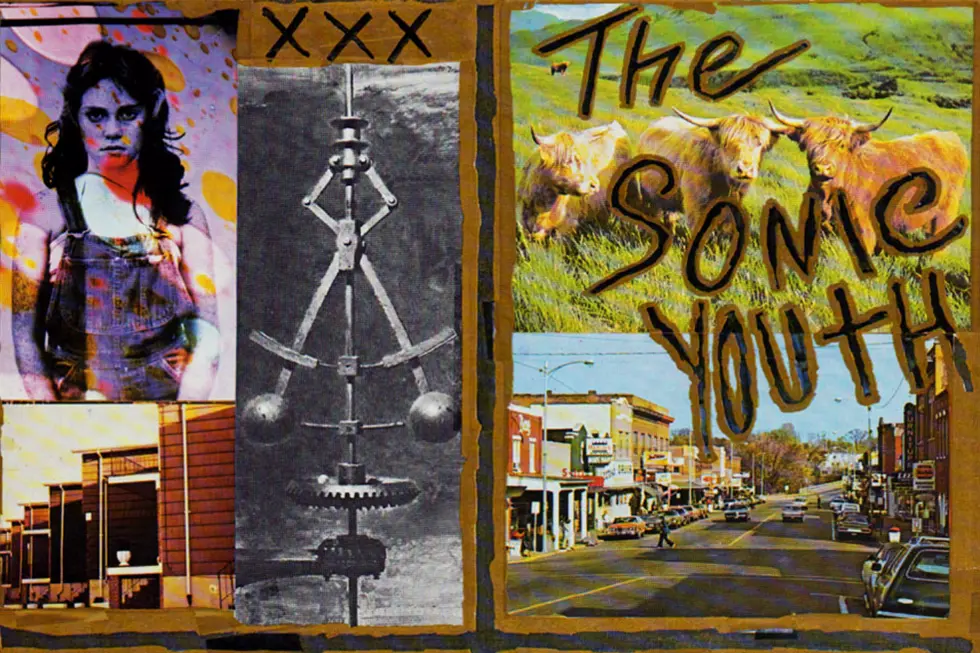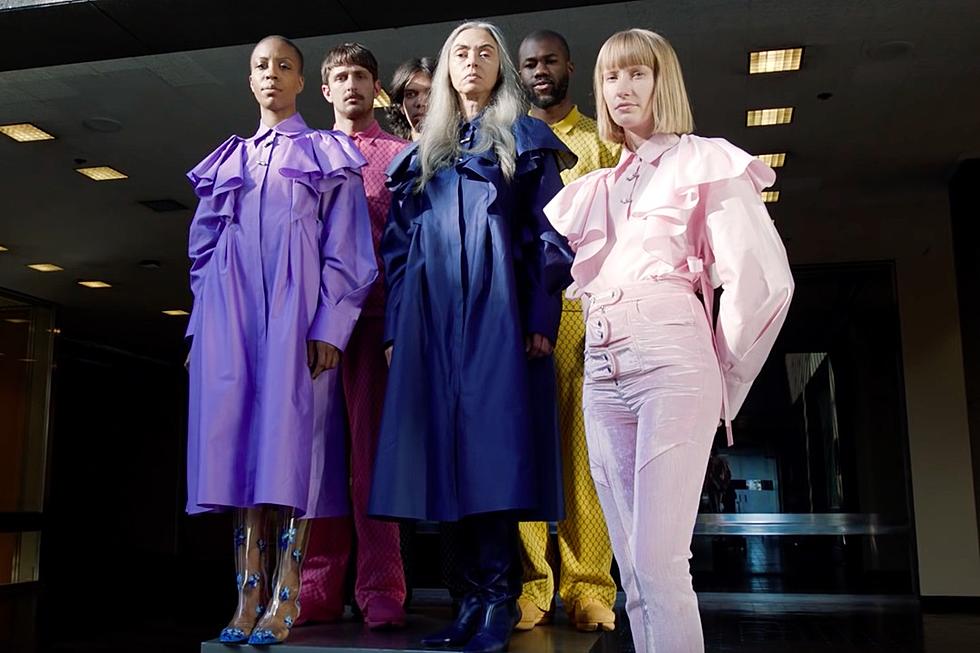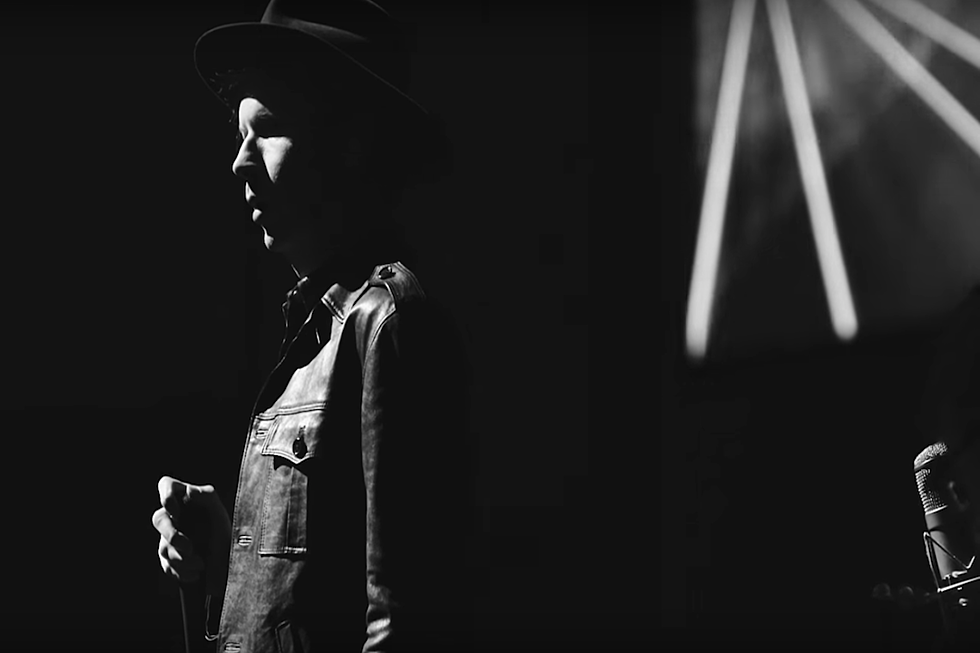In Defense of … Sonic Youth’s ‘Dirty’
If 1991 was the Year Punk Broke, then 1992 was the year punk's elder statesmen Sonic Youth were supposed to join in on the hit parade. After watching a slew of bands less popular, lesser known -- and, well, just lesser -- hit it big, the Youth were expected to finally come through with a big score of their own.
Sonic Youth had become undisputed heroes of the American underground in the '80s thanks to a string of progressively more ambitious albums, peaking with the cross-wired and chaotic 'Sister' in 1987 and the sprawling classic 'Daydream Nation' a year later. The band created its own distinct sonic blueprint, playing punked-up anthems and No Wave weirdness on hot-rodded, custom-tuned guitars cranked through racks of tripped-out effects pedals. They became one of indie rock's most influential bands in the process, and in the early-'90s took a then-little-known Seattle trio called Nirvana under their wing.
'The Year Punk Broke' was frontman Thurston Moore's tongue-in-cheek title for a tour documentary SY slapped together to capture their summer-of-'91 European trek that just so happened to offer the last few fleeting glimpses of tour mates Nirvana before 'Nevermind' was unleashed upon the world and effectively altered the course of rock history forever. The aphorism "a rising tide lifts all boats" was certainly in play following 'Nevermind,' with everybody from fellow Seattle grungers Pearl Jam and Soundgarden and indie upstarts like Pavement and PJ Harvey finding their own success in its wake.
But what about Sonic Youth, who not only hand-picked Nirvana for their '91 Euro tour, but also played a large roll in getting Kurt Cobain and company to join them on the Geffen Records imprint DGC? Would the veteran New York noise rockers finally cash in on their years as critical darlings -- and their sudden proximity to one of the biggest bands in the land? Their label DGC certainly hoped so.
Sonic Youth's first post-'Nevermind' album 'Dirty' was released on July 21, 1992, and the disc's first single, '100%,' was a clear statement that they had no intentions of "selling out." Opening with a sheet of screeching feedback, the tune quickly launched into a two-minute, hard-edged post-hardcore assault. It was, and remains, their biggest radio hit to date, peaking at No. 4 on the Billboard Modern Rock Tracks chart and helping propel the album to a No. 83 debut on the Billboard 200 albums tally.
Not a bad showing for sure, but nowhere near the multi-platinum heights Geffen had hoped for, and widely considered a major disappointment for a band expected to accomplish big things. Geffen exec Mark Kates later admitted that '100%' "was not a great radio song," and personally chose the politically charged 'Youth Against Fascism' as the disc's second single. The song's constantly-repeated refrain ("It's the song I hate") became a self-fulfilling prophecy, and 'Fascism' tanked, killing any momentum 'Dirty' had in the process. Kates later said that picking it as a single was "one of the biggest professional mistakes of my life."
Considering the large number of gems on the album, it was a serious mistake. 'Dirty' was definitely the band's most eclectic offering to date -- detractors would call it schizophrenic -- with tracks that ran the gamut from fiery political manifestos ('Chapel Hill,' Kim Gordon's 'Swimsuit Issue') and grubby post-punk ditties ('Nic Fit') to epic, glistening ballads ('Theresa's Sound World,' Lee Ranaldo's 'Wish Fulfillment'). With its mesmerizing mix of catchy melodies and masterful tension-release dynamics, 'Sugar Kane' may be the most perfect Sonic Youth single ever; unfortunately, by the time it was released as one in 1993, the hype machine had passed 'Dirty' by.
But even before it became clear 'Dirty' wasn't going to live up to its over-sized expectations, the backlash had begun. Many took the band to task for recruiting producer Butch Vig and mixer Andy Wallace -- the same one-two punch that had twiddled knobs on 'Nevermind' -- to record the album, although perhaps the intention there wasn't as overt as it seemed. Moore claimed Vig got the job because of the work he had once done with an obscure Midwest proto-thrash act called Mecht Mensch.
Whatever the reason for hiring the pair, the result was a crisp sonic clarity not heard on any previous SY release. Although nothing could hide the layers of the band's trademarked fuzzy skronk and ear-piercing feedback that permeated the disc, the more direct approach brought new ears to Sonic Youth, who obviously were well aware of the emerging youth markets opening up to them thanks to the runaway success of 'Nevermind' -- it would've been impossible for them not to be -- and certainly weren't trying to push away new fans. But 'Dirty' made clear that if Sonic Youth were going to break anything, they would only do so on their own terms.
More From Diffuser.fm









